commentary Commentary
Commentary: Will a US president facing impeachment manufacture a foreign policy crisis?
Donald Trump will soon be the third US President impeached. Does that mean he might engineer a foreign policy crisis to distract the American public? Steven Okun provides some perspective.
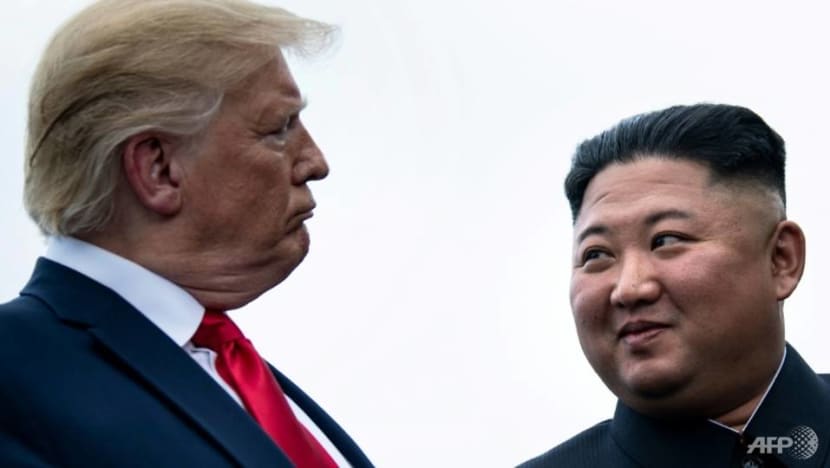
US President Donald Trump and North Korea's leader Kim Jong-un talk before a meeting in the Demilitarized Zone (DMZ) on June 30, 2019, in Panmunjom, Korea AFP/Brendan Smialowski
SINGAPORE: Having lived in Washington DC and worked in the Clinton Administration, when I moved to Singapore in 2003 and people learnt this, I often got asked:
How realistic is The West Wing?
My answer: It’s a great show. But it’s a TV drama, not a documentary.
Coupled with next year being an election year, and in light of Donald Trump soon to become the third US president ever impeached, I have now been asked if the US President may look to create a foreign policy crisis to become more popular like in the 1998 movie Wag The Dog.
In that movie, in the lead-up to a presidential election, a White House aide gets a Washington spin doctor (played by Robert DeNiro) to hire a Hollywood producer (played by Dustin Hoffman) to produce a phony military crisis in order to distract the media and the public from a presidential sex scandal.
My short answer is no – we are not about to face a manufactured crisis. Wag The Dog is a movie – it is not going to play out in real life.
A MANUFACTURED FOREIGN POLICY CRISIS?
Even though we are headed into one of the most unpredictable election years in US history, a safe prediction is that the current administration will not look to manufacture a foreign policy crisis in an effort to gain votes this coming November.
READ: Commentary: So this latest attempt at impeachment is rather awkward
READ: Commentary: Trump’s impeachment - don’t hold breath (yet) for conviction or removal
A cohort of hardworking political appointees, career civil service and elected officials dedicated to achieving the public interest comprise the US government. Even if the President wanted to do so – which is extraordinarily unlikely – they would prevent that from happening.
But what about Kosovo?
Yes, there were foreign policy crises taking place during the time of President Clinton’s impeachment, in Kosovo in particular, as Serbian and Montenegro forces pushed into the former Yugoslavia state.
The North Atlantic Treaty Organisation (NATO) responded with a bombing campaign supporting rebel Kosovo Albanian groups.
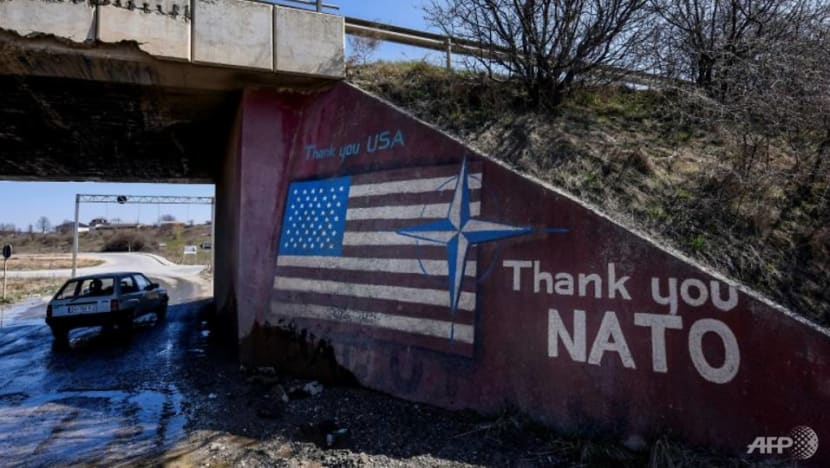
Almost exactly 21 years ago (on Dec 19, 1998), the US House of Representatives impeached President Clinton on two articles — perjury and the obstruction of justice.
President Clinton was tried by the Senate and acquitted on Feb 12, 1999, by votes of 55-45 and 50-50 on the two counts respectively.
The NATO bombing campaign began in March.
Would the US and NATO have acted any differently, but for impeachment? Almost certainly not.
President Clinton was not running for re-election. He had nothing to gain politically from launching military action.
US foreign policy also had multilateralism at its core, or at least it was a significant part of it. The bombing was undertaken as a multinational NATO military operation against the Federal Republic of Yugoslavia and the forces creating a humanitarian crisis.
WILL TRUMP BE TEMPTED TO TAKE UNILATERAL ACTION?
Unlike his predecessors, President Trump has a unilateral approach to foreign policy.
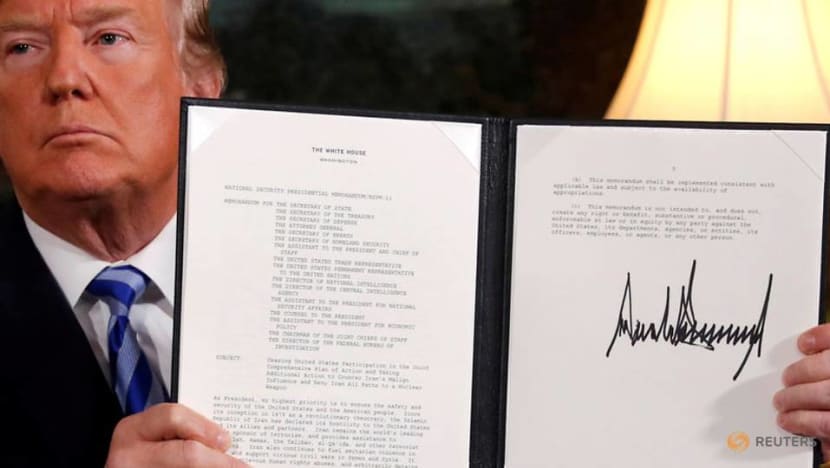
The world is ripe for conflict in many places as we head into 2020 – including in the Middle East generally and Iran in particular, as well as the brewing dispute over territories in the South China Sea closer to home that is unlikely to see any resolution for the foreseeable future.
The greatest likelihood for US involvement in a military conflict in the near term is with North Korea. That has been true for a while.
President Trump faces a long-term crisis in North Korea not of his own making - similar to what Bill Clinton faced in the Balkans.
But are we any more likely that President Trump would take unilateral action heading into an election year than he has in his first three years in office? I doubt it.
READ: Commentary: The sands in the South China Sea dispute may be shifting
READ: Commentary: Tensions over Iran are creeping towards dangerous levels
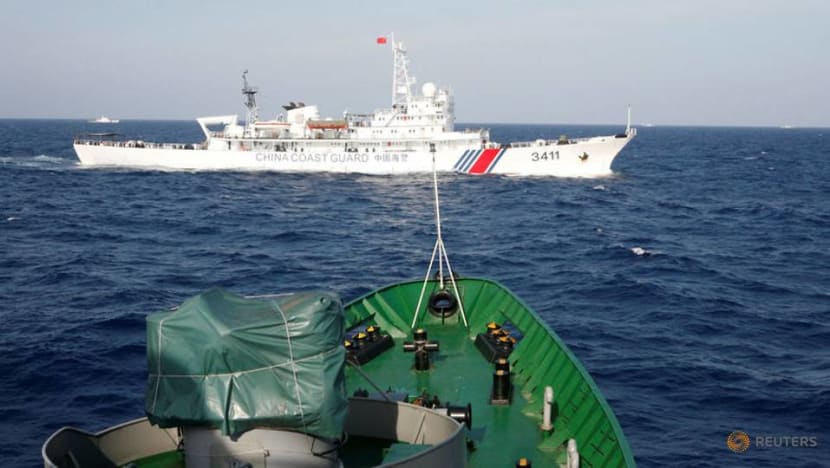
WHY A CRISIS WON’T CREATE A RALLY-AROUND-FLAG EFFECT
Even if in the past the country would have rallied around the President in times of a foreign policy crisis, that is much less likely now.
Republicans love Donald Trump and Democrats do not. His approval rating overall has never been above 50 per cent - nothing he would initiate would get him above that threshold.
It is basically impossible for him to be any stronger with Republicans, any weaker with Democrats, and to get independents to change their view.
Manufacturing or exacerbating a foreign policy crisis would also go against much of Donald Trump’s America First foreign policy and could end up costing him political support.
The more likely question we might have to confront is will Kim Jong Un take action that would force the United States — ideally with the support of its allies — to retaliate?
Kim’s family’s history suggests Kim would not take steps that would lead to a military campaign against his regime. He often walks up to the line. Sometimes he peers over it and maybe dips a toe over the line.
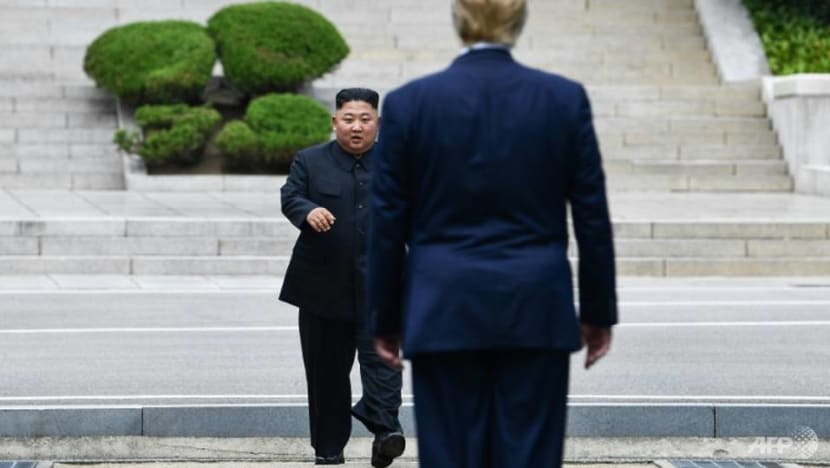
As my friend Paul Haenle from the Carnegie-Tsinghua Center discussed on a recent podcast, Kim is particularly adept at calibrating his provocations so as not to anger China or Russia while drawing the attention of the US.
MANAGING KIM JONG UN
Back to Hollywood.
The Kim regime is notorious for being obsessed with Hollywood.
Kim Jung Il, the father of the current leader, reportedly owned more than 30,000 videos and DVDs, among them every Oscar winner. It is said that he counted Elizabeth Taylor among his favorite actresses.
Kim Jong Un has an obsession with Hollywood as well. North Korea promised "merciless" retaliation when it learned a Hollywood movie about killing Kim Jong Un was going to be released.
READ: Commentary: Kim Jong Un is using North Korea's nuclear capabilities for extortion
READ: Commentary: The man who took the biggest bet on North Korea leader Kim Jong Un
When The Interview came out, North Korea launched a cyberattack against the Hollywood studio in charge of the movie in retaliation.
Possibly in recognition of the family’s obsession with cinema, when they met in Singapore, Donald Trump screened a Hollywood-type movie trailer showing the potential for North Korea if it were to agree to a treaty with the US committing to denuclearisation.
THE BIGGER FOREIGN POLICY RISK
With a Senate impeachment trial potentially kicking-off in January, the bigger foreign policy risk is this: Will Kim Jong Un see Donald Trump as vulnerable, change his tactics and try to take advantage of the situation?
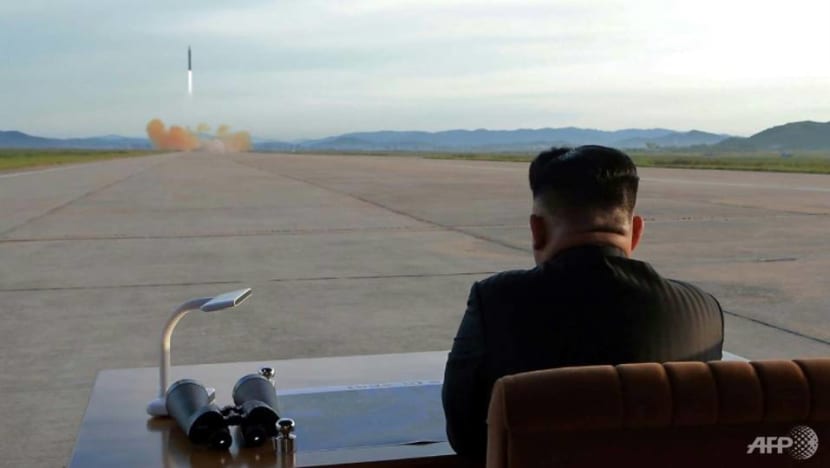
Let’s hope the current leader of North Korea is as much a cinephile as his father and that he thinks that movies about politics and government are realistic.
Maybe he thinks a real-life version of Wag The Dog is possible — that Donald Trump could actually launch an attack against North Korea as a way to distract the country from impeachment and lead to his re-election.
Then Kim would be even more cautious of giving the US and its allies a rationale to take military action.
Come to think about it, if anyone from North Korea asks me how realistic Hollywood movies and television shows are when it comes to government and politics, I will tell them very much so.
Steven R Okun regularly provides analysis for CNA on US politics and trade. An official in the Administration of President Bill Clinton, he serves as Senior Advisor for global strategic consultancy McLarty Associates and is in his fourth term as a Governor of the American Chamber of Commerce in Singapore. The views are his own.












